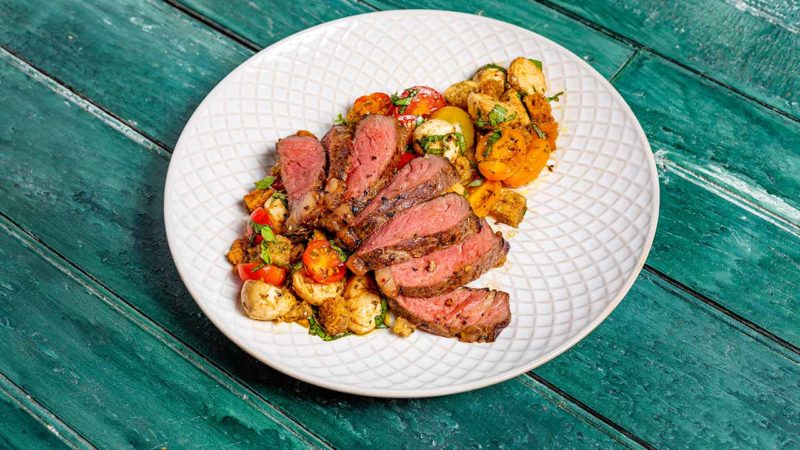Last Updated on January 30, 2025
When you start with quality chicken, pork, and beef, you can often throw it directly on the grill with just a pinch of salt and pepper, and it will still come out tasting amazing. But a marinade—even a simple one—can take that protein to the next level.
What’s a marinade?
A marinade is a mixture usually consisting of an acid (such as vinegar, citrus juice, or wine), some oil, and spices. Marinades tenderize proteins and infuse them with flavor.
Marinating best practices
You may think that if you don’t have hours on end to marinate, it’s not worth the trouble—but actually, even a short time can make a big difference, says ButcherBox in-house chef Yankel Polak.
“While there’s nothing wrong with preparing your ingredients the day before, remember that a good marinade only needs minimal contact with your protein to do everything it’s supposed to do,” he says.
Here are some other tips for perfectly marinated proteins:
- Match the marinade to the meat. “Think about the item you’re cooking, whether that’s chicken, beef, or pork, and use ingredients in your marinade that will compliment the flavor,” Yankel says. Though there are exceptions, a simple way to think about it is to pair citrus with chicken, sweet flavors (like maple or pineapple) with pork, and rich, savory flavors (like balsamic or mushroom) with beef.
- DIY your marinade. Making your own is usually healthier and less expensive than using store-bought marinades, Yankel says. It doesn’t have to be fancy; you can whip up a delicious, complex-tasting marinades with just a few basic ingredients out of your pantry. Blend or whisk well to emulsify the acid and oil.
- Spice things up. Raid your pantry for dried herbs and spices, and/or use alliums like garlic or shallots to add depth. Condiments like fish sauce, mustard, Worcestershire sauce and tomato paste also bring loads of flavor, as does citrus zest.
- Balance is key. Add a touch of sweetness to balance the acid. Honey, molasses, maple syrup, coconut sugar and blended fruit (like kiwi) all lend sweetness. Unless you’re looking for a sweet marinade, a little of these ingredients goes a long way.
- Use the right vessel. Marinate in glass or stainless steel containers, or in large ziplock bags. Avoid aluminum, which may react with the acid in the marinade and negatively affect the flavor and color of the protein.
- Discard the extra, or cook it. Once you’ve finished marinating, either discard the marinade, or, if you’re going to use it as a sauce, boil it for a few minutes to kill any bacteria.
Read next: Freezer Marinades: A Life Hack on the Path to Better Meals
Dennis Keohane is a writer, editor, and former Editorial Director for ButcherBox with a passion for storytelling and food. Combining his love for high-quality ingredients with engaging narratives, he crafts content that inspires home cooks to explore new flavors, techniques, and the joy of cooking.



